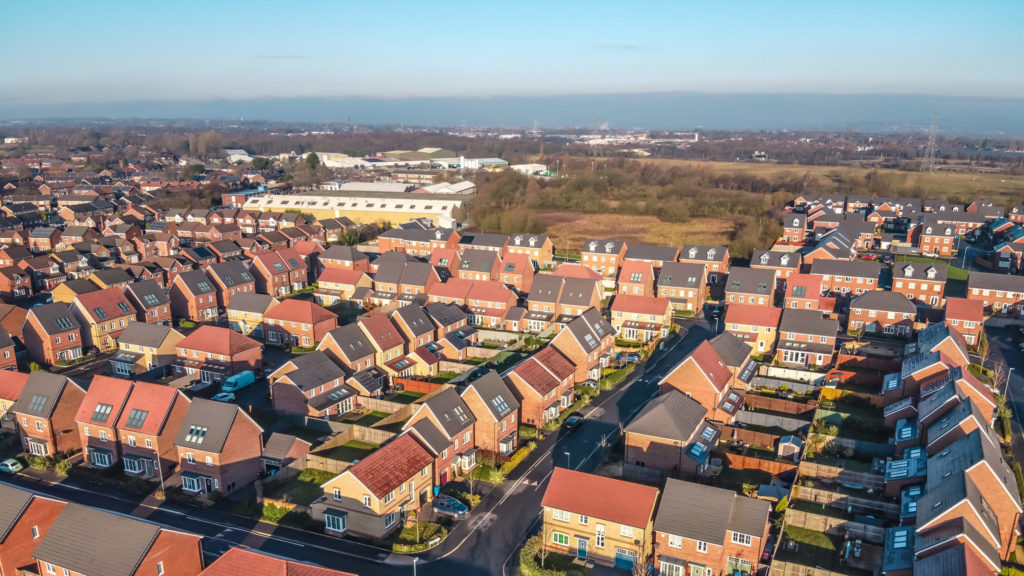
This month, in anticipation of xChats: Affordable Housing Beyond Our Borders on May 26th, The FWD will be focusing on housing innovations from across the globe.
The FWD #149 • 527 Words
Can’t buy a home? What about a share in a home?
What if instead of buying a home outright, you could buy a share of a home? That’s an option for households in the United Kingdom who face obstacles in moving from renting to buying. Shared ownership is a tenure that allows qualified households to sit somewhere between renting and ownership by buying a portion of a home from a housing association (private, nonprofit housing organizations).
In the U.K., “getting onto the property ladder” is a phrase used to describe buying your first home. “Climbing” that ladder is a process over time that involves buying a cheaper home and progressively upgrading to a higher value home. But like the U.S., our friends across the pond have been experiencing a housing crisis of their own. Housing costs have been rising faster than wages, leaving many with the inability to meet mortgage payments or even save enough for a down payment.
With shared ownership, households earning £80,000 or less (approx. $111,000) outside of London and £90,000 or less (approx. $125,000) in London can buy a share of home (between 25% and 75%) and pay rent on the remaining costs. You also have to either: be a first-time home buyer, have owned a home, but can no longer afford to buy one, or be an existing shared owner looking to move.
Buying a share of a home drastically reduces the loan amount on a mortgage, but also requires you to pay monthly rent and mortgage payments. Imagine that you bought a 40% share of a $250,000 property—a $100,000 share. The housing association typically charges a 2.75% rent on the remaining shares that it owns. This results in a monthly rent of $229.
With a $100,000 loan with a 5% down payment and typical mortgage terms (30 years, 4% interest), monthly mortgage payments would cost you about $477. Rent and mortgage payments would amount to just over $700, which in many housing markets in Virginia is less than rent alone for a two bedroom apartment. “Staircasing” allows buyers to increase their shares over time, with a typical end goal of full ownership.
This U.K. Government-supported housing strategy has been around for over 30 years, but has had its critics. Chief among the critiques is that if income increases continue to be slow, while home values increase rapidly, the ability to buy equity is reduced significantly. This is because the price of shares is determined by the value of the home at the time of staircasing.
But what can this model show us here in the United States? Perhaps it’s that we should think beyond the all-or-nothing, homeowner or home renter. There are a slew of tenure models to consider: community land trusts and limited equity cooperatives being just two of them.
Do you want to learn more about shared ownership in the United Kingdom and how it can help us re-envision housing in Virginia and the United States? Helen Collins with Savills Affordable Housing Consultancy will be speaking during our May 26th HousingX event, xChats: Affordable Housing Beyond Our Borders.
